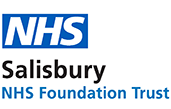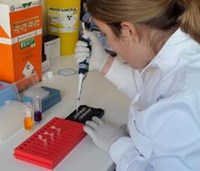

The WGLS has a strong research ethos which complements the diagnostic service and enables us to keep up with new developments in a rapidly-changing and expanding discipline.
Our basic research, much of which is conducted under the auspices of the University of Southampton, is directed at understanding how abnormalities of genes or chromosomes can lead to haematological malignancies, imprinting disorders and other conditions. The work is led by Principal Investigators based in Salisbury and funded predominantly by Bloodwise, Kay Kendall Leukaemia Fund, Medical Research Council, Diabetes UK and Newlife Foundation for Disabled Children.

Our applied research has included a number of areas relevant to NHS genetic diagnostics, including non-invasive prenatal diagnosis and testing (RAPID), the Prenatal Assessment of Genomes and Exomes project (PAGE) and piloting clinical exome sequencing for diagnostic use. Current projects focus on standardisation of molecular monitoring for chronic myeloid leukaemia as part of the EUTOS programme and development of new diagnostic tests for haematological malignancies and imprinting disorders.
Our research is leading to the development of new and improved diagnostic tests, better understanding of fundamental disease processes, identification of new drug targets and improved patient stratification. For further information please contact Professor Nick Cross.
The combined WGLS research programmes have led to many publications in scientific journals.
Our staff at Salisbury District Hospital have long been well regarded for the quality of care and treatment they provide for our patients and for their innovation, commitment and professionalism. This has been recognised in a wide range of achievements and it is reflected in our award of NHS Foundation Trust status. This is afforded to hospitals that provide the highest standards of care.
